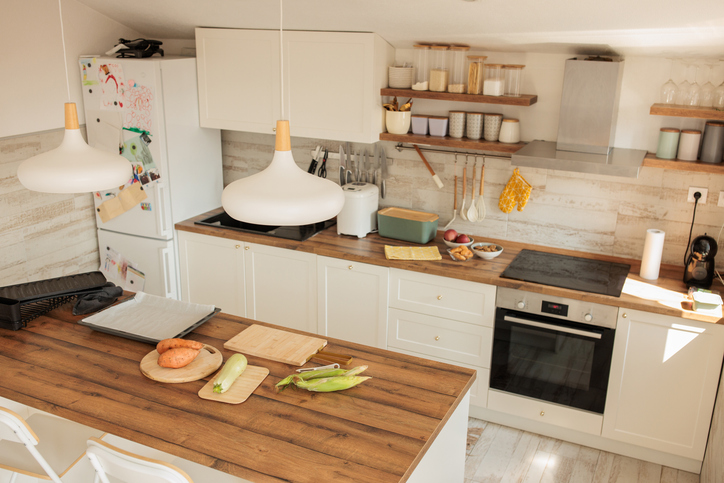- All blogs >
- Windows & Doors >
- From Quote to Close: Digitizing the...
From Quote to Close: Digitizing the Sales Process
Kitchen & Bathroom
Cyncly Design Team
In today’s kitchen and bath market, speed and accuracy are everything. Customers expect timely responses, clear pricing, and seamless communication. Yet for many independent retailers, the quoting process still relies on disconnected spreadsheets, paper notes, or slow back-and-forths between departments.
The result? Delayed responses, frustrated customers, and missed opportunities.
Digitizing the quote-to-close process doesn’t just speed things up – it gives you the confi-dence to grow. With accurate product data, connected workflows, and a digital bridge be-tween design and production, your team can focus on selling, not scrambling.
Let’s explore what it looks like to modernize this crucial part of your business.
Why the Manual Process Holds You Back
Manual quoting processes introduce friction at every step. Key issues include:
- Human error: Inaccurate pricing, missed line items, and rework.
- Delays: Waiting on emails, tracking down approvals, or unclear handoffs.
- Customer confusion: Lack of transparency or clarity about what’s included.
These problems compound in busy periods or when offering custom solutions. In a market where buyers are comparing options quickly, even small delays can cost you the sale.
What a Digitized Sales Process Looks Like
A streamlined digital process starts with integration:
- Design-to-quote: Design outputs automatically populate item lists, reducing re-work.
- Connected product data: Prices, options, and rules are always up to date.
- Branded proposals: Clean, professional documents with visuals and pricing.
- Digital approval & signature: Customers can say yes from anywhere.
Together, these steps create a sales experience that’s both faster and more professional.
Key Benefits for Retailers
Digitizing your sales process unlocks value for both your business and your customers:
- Respond faster with ready-to-go pricing and templates.
- Win more jobs by reducing errors and delays.
- Look more professional with modern, branded proposals.
- Save admin time by removing duplicate data entry.
- Track performance by analyzing conversion rates, quote velocity, and more.
This is where digital quoting becomes more than a convenience – it becomes a strategic advantage.
Best Practices to Get Started
Here are a few tips to begin modernizing your quote-to-close journey:
- Start small: Digitize one product category or process first.
- Involve your team: Salespeople and designers should help shape the workflow.
- Use real projects: Test your system with real quotes to refine templates and logic.
- Build in flexibility: Allow for adjustments when working with custom requests.
- Track results: Measure quote turnaround time and close rates before and after digitizing.
Final Thoughts
Digitizing your quoting process doesn’t mean giving up control – it means gaining it. When sales, design, and customer communication are all connected, you’re not just faster. You’re more accurate, more scalable, and more ready for what’s next.
As the playbook shows, web-to-store transformation starts with operational shifts like this – simple changes with significant payoff.
Ready to see what streamlined quoting could look like in action? Download the full play-book or request a demo today.
Related blogs

Reduce overhead costs: Streamline operations in KBB retail
March 06, 2025
Learn how to reduce overhead costs in your kitchen, bathroom, and furniture retail business by streamlining operations and enhancing efficiency.

Boost Retail Sales: Effective Techniques for KBF Retailers
January 21, 2025
Discover effective techniques to increase sales in your kitchen, bathroom, and furniture retail business. Boost revenue and enhance customer engagement with these strategies.

What is the kitchen triangle rule? A guide to functional kitchen design
January 06, 2025
The kitchen triangle rule optimizes the layout of the sink, stove, and refrigerator for efficient cooking. Learn how to use this principle to design functional kitchens.